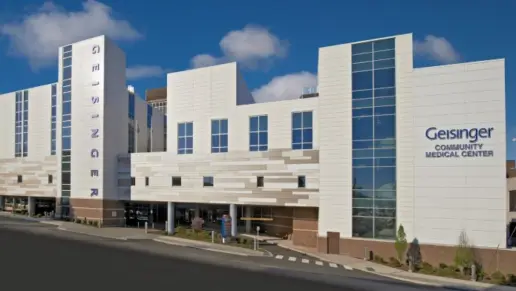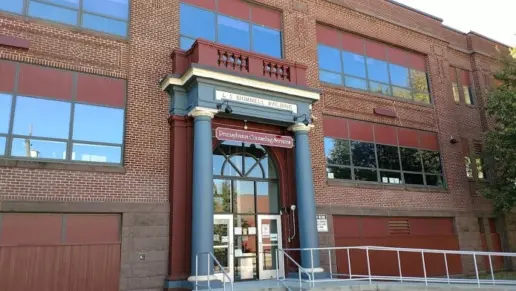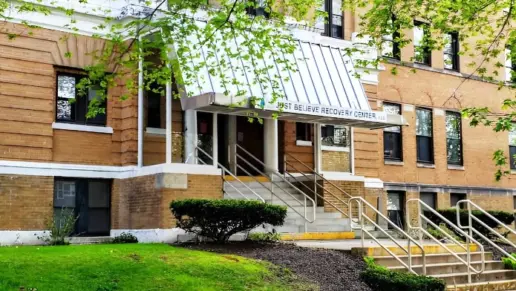About Altoona VA James E. Van Zandt – Johnstown OP Clinic
Altoona VA James E. Van Zandt - Johnstown OP Clinic offers general medical care. This ranges from primary care to behavioral health and smoke & tobacco cessation. They even offer telehealth care, social support services and specialized programs for homeless vets. This outpatient facility is in Johnstown, Pennsylvania. The clinic is about 70 miles east of Pittsburgh. This means vets from Pittsburgh can get to the clinic in about an hour and 20 minutes.
Thankfully, they offer travel reimbursement for vets coming from far locations. So you don’t have to worry about those expenses. They can even help you arrange transportation to and from your appointment. They also offer same day help, and you may qualify for care even if you’re not enrolled in the VA health system.
Their mental health department provides confidential and personalized outpatient substance use treatment. This program involves evaluation and treatment support or therapy. This aims to equip you with healthy tools to cope with life challenges that may trigger substance use. They may offer medication assisted treatment (MAT) if relevant to your complete recovery. This means using meds to curb cravings and reduce withdrawal symptoms.
I think the best thing about this facility is their telehealth care. You can receive therapy and medical checkups and arrange a doctor visit virtually. This can be super convenient. They offer video conferencing, home telehealth services and even store-and-forward telehealth. The latter lets you securely send/receive your health information to/from experts at VA facilities.
Their smoke and tobacco cessation programs equip you with various strategies to quit smoking. They may offer meds approved by the FDA to manage nicotine withdrawal and the urge to smoke. They back this up with in person or phone counseling to deliver the best outcomes. You can also receive individual counseling and other treatment support via their Tobacco Cessation Quitline. These services can really help you quit smoking and stay tobacco-free over time.
The clinic offers tailored services to support homeless vets or those at risk of homelessness. It doesn’t matter if it’s due to financial challenges, unemployment or addiction. They’ll provide supportive services to get you back on your feet. This includes immediate food or shelter needs like transitional or permanent housing.
You may receive financial support, job training and life skills development as well. The program even offers justice system navigation for vets involved with the court system, including free healthcare and substance use treatment. More community recovery support services can be accessed through their social work.
Medicare, Medicaid and TRICARE are some of the best ways to fund your treatment here. They accept private insurance and out-of-pocket payments as well. Financial aid may be accessible if you qualify.
Gallery
Other Forms of Payment
Self-pay involves paying for treatment out of your own pocket. You can use savings or credit, get a personal loan, or receive help from family and friends to fund your treatment. If you don't have insurance or your insurance plan doesn't cover a specific program, self-pay can help ensure you still get the care you need.
Military members, veterans, and eligible dependents have access to specific insurance programs that help them get the care they need. TRICARE and VA insurance can help you access low cost or no cost addiction and mental health treatment. Programs that accept military insurance often have targeted treatment focused on the unique challenges military members, veterans, and their families face.
Financial aid can take many forms. Centers may have grants or scholarships available to clients who meet eligibility requirements. Programs that receive SAMHSA grants may have financial aid available for those who need treatment as well. Grants and scholarships can help you pai for treatment without having to repay.
Private insurance refers to any kind of healthcare coverage that isn't from the state or federal government. This includes individual and family plans offered by an employer or purchased from the Insurance Marketplace. Every plan will have different requirements and out of pocket costs so be sure to get the full details before you start treatment.
Addiction Treatments
Levels of Care
Treatments
Mental health rehabs focus on helping individuals recover from mental illnesses like bipolar disorder, clinical depression, anxiety disorders, schizophrenia, and more. Mental health professionals at these facilities are trained to understand and treat mental health issues, both in individual and group settings.
Programs




Clinical Services
Cognitive Behavioral Therapy (CBT) is a therapy modality that focuses on the relationship between one's thoughts, feelings, and behaviors. It is used to establish and allow for healthy responses to thoughts and feelings (instead of unhealthy responses, like using drugs or alcohol). CBT has been proven effective for recovering addicts of all kinds, and is used to strengthen a patient's own self-awareness and ability to self-regulate. CBT allows individuals to monitor their own emotional state, become more adept at communicating with others, and manage stress without needing to engage in substance abuse.
Research clearly demonstrates that recovery is far more successful and sustainable when loved ones like family members participate in rehab and substance abuse treatment. Genetic factors may be at play when it comes to drug and alcohol addiction, as well as mental health issues. Family dynamics often play a critical role in addiction triggers, and if properly educated, family members can be a strong source of support when it comes to rehabilitation.
Group therapy is any therapeutic work that happens in a group (not one-on-one). There are a number of different group therapy modalities, including support groups, experiential therapy, psycho-education, and more. Group therapy involves treatment as well as processing interaction between group members.
In individual therapy, a patient meets one-on-one with a trained psychologist or counselor. Therapy is a pivotal part of effective substance abuse treatment, as it often covers root causes of addiction, including challenges faced by the patient in their social, family, and work/school life.
Life skills trainings involve all the skills a person must have in order to function successfully in the world. These include time management, career guidance, money management, and effective communication. Truly successful addiction recovery is based on the ability to not only live substance-free, but to thrive. Life skills teaches the practical necessities of functioning in society, which sets clients up for success in life, and therefore sobriety.
Motivational Interviewing (MI) is a clinical approach to helping people with substance abuse issues and other conditions shift behavior in positive ways. It is more goal-oriented than traditional psychotherapy, as MI counselors directly attempt to get clients to consider making behavioral change (rather than wait for them to come to conclusions themselves). Its primary purpose is to resolve ambivalence and help clients become able to make healthy choices freely.
Nicotine Replacement Therapy (NRT) is a way of getting nicotine into the bloodstream without smoking. It uses products that supply low doses of nicotine to help people stop smoking. The goal of therapy is to cut down on cravings for nicotine and ease the symptoms of nicotine withdrawal.
Nutrition therapy, aka medical nutrition therapy (MNT), is a way of treating physical, emotional, and medical conditions through diet. Specific dietary plans are designed by professional nutritionists or registered dietitians, and patients follow them in order to positively affect their physical and mental health.
Trauma therapy addresses traumatic incidents from a client's past that are likely affecting their present-day experience. Trauma is often one of the primary triggers and potential causes of addiction, and can stem from child sexual abuse, domestic violence, having a parent with a mental illness, losing one or both parents at a young age, teenage or adult sexual assault, or any number of other factors. The purpose of trauma therapy is to allow a patient to process trauma and move through and past it, with the help of trained and compassionate mental health professionals.
Amenities
-
Residential Setting
-
Private Setting
Accreditations

The Joint Commission, formerly known as JCAHO, is a nonprofit organization that accredits rehab organizations and programs. Founded in 1951, the Joint Commision's mission is to improve the quality of patient care and demonstrating the quality of patient care.
Joint Commission Accreditation: Yes
Accreditation Number: 4583
Contact Information
598 Galleria Drive
Johnstown, PA 15904


